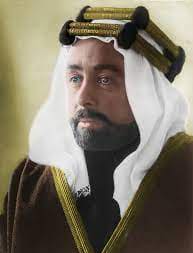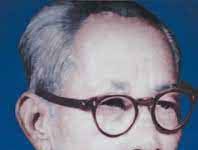King Abdullah I | Brief Biography
King Abdullah I
King Abdullah I, also known as Abdullah ibn Al-Hussein, was the first king of Jordan, reigning from the country’s independence in 1946 until his assassination in 1951. He was born in Mecca, in the Ottoman Empire, on January 18, 1882, to Sharif Hussein bin Ali, the Grand Sharif of the Hashemite Kingdom of Hejaz, and his wife, Dalal bint Ali.
Abdullah was educated in Istanbul, Turkey, and in Britain, where he was sent to further his studies in military science. He joined the British army during World War I and became a personal adviser to T.E. Lawrence, also known as Lawrence of Arabia, in the Arab Revolt against the Ottoman Empire. After the war, he was appointed as the Emir of Transjordan in 1921, and he ruled the territory under British mandate until the country’s independence in 1946.
King Abdullah I was a visionary leader who aimed to modernize Jordan and lay the foundation for a strong and independent state. He was instrumental in creating a constitutional monarchy and establishing a democratic system of government, with the adoption of Jordan’s first constitution in 1952. He also worked to develop the country’s infrastructure, including building roads, schools, and hospitals, and establishing a central bank and a national army.
One of King Abdullah’s most significant achievements was his role in the establishment of the state of Israel in 1948. Despite being opposed to the creation of the Jewish state, he negotiated a secret agreement with the Israeli government, known as the Abdullah-Ben Gurion agreement, aimed at maintaining peace and stability in the region.
King Abdullah was assassinated on July 20, 1951, while attending Friday prayers at the Al-Aqsa Mosque in Jerusalem. His assassin was a Palestinian nationalist who opposed his pro-Western stance and efforts to reach a peace agreement with Israel. 0 0 0.
Sources:
“Jordan: A Study in Political Development” by Augustus Richard Norton
“King Abdullah of Jordan: A Political Life” by Avi Shlaim
“Jordan: A Hashemite Legacy” by Samir A. Mutawi
“Abdullah I of Jordan” by Mark Tessler, in the Historical Dictionary of Middle Eastern Intelligence
“Abdullah I of Jordan” on the Encyclopædia Britannica website
The official website of the Hashemite Kingdom of Jordan. ***
N.B. The article originally belongs to the book ‘Brief Biographies of Eminent Monarchs‘ by Menonim Menonimus.
Books of Biography by M. Menonimus:
- The World Writers-Brief Biographies
- Introduction to World Writers
- Introduction to World Personalities
- Love of Reputed Persons
- Brief Biographies of Ancient Thinkers and Writers..
Additional Searches:
- Famous Kings and Queens
- Living Biographies of Famous Rulers
- Biography of Elizabeth II
- Most Famous Kings in History











